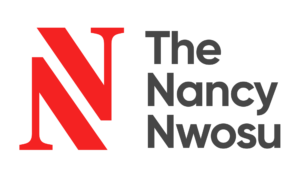Back To School
IDENTIFIED PROBLEM
The UNESCO Institute of Statistics reports that 60% of youths aged 15-17 years are not enrolled in school, with one contributing factor being the hidden or direct costs associated with education. In Nigeria, this age group is four times more likely to be out of school compared to children aged 6-12.
This disparity partly stems from the fact that while Junior Secondary School completion is compulsory and free in most countries, senior secondary education is not. Additionally, many young people in this age bracket are legally eligible to work, further complicating their educational prospects.

These challenges significantly contribute to the high number of out-of-school youths in Nigeria and hinder the development of relevant skills and knowledge needed for tertiary education.
OUR STRATEGIC SOLUTION
The Street to School Fund was created to offer immediate and comprehensive support to academically bright but financially disadvantaged students in underserved schools and from low-income households. In alignment with the overarching goal of achieving universal access to education, financial aids such as the Street to School Fund provide an alternative funding avenue for students transitioning into education within resource-constrained environments and limited budgets. This initiative represents an opportunity for those who may otherwise face financial barriers to pursue their educational aspirations.
The program includes a series of career mentorship and exam preparation support events aimed at providing students with strategic guidance during a critical juncture in their academic journey.
Implemented across schools in Lagos, the Street to School Fund plans to expand its reach to additional schools and communities in the future. Each year, the fund supports 100 to 200 students by covering their exam fees, based on individual preferences and needs.
Funding for the Street to School Fund is sourced globally, with significant contributions from individuals committed to supporting these students on their educational path. This initiative aims to break down financial barriers and create equal opportunities for all students to pursue their educational goals, regardless of their economic circumstances.
KEY OBJECTIVES
- Increase Access to Education: Facilitate enrollment and retention of academically bright but financially disadvantaged students in underserved schools and low-income communities, ensuring that no student is excluded from pursuing their educational aspirations due to financial constraints.
- Alleviate Financial Burdens: Provide immediate financial support to cover exam fees and other educational expenses for students facing economic hardship, thereby relieving financial burdens and enabling them to focus on their studies without worrying about financial constraints.
- Foster Academic Excellence: Support students with mentorship programs, career guidance, and exam preparation resources to enhance their academic performance, improve their educational outcomes, and empower them to reach their full potential academically.
- Promote Equity and Inclusion: Promote equity in education by addressing disparities in access to educational resources and opportunities among students from different socio-economic backgrounds and gender, ensuring that all students have equal access to quality education regardless of their financial circumstances.
- Expand Reach and Impact: Expand the reach of the Street to School Fund to additional schools and communities, increasing the number of students who benefit from the program each year by 40% and amplifying its impact on educational access and success.



Our Partners






